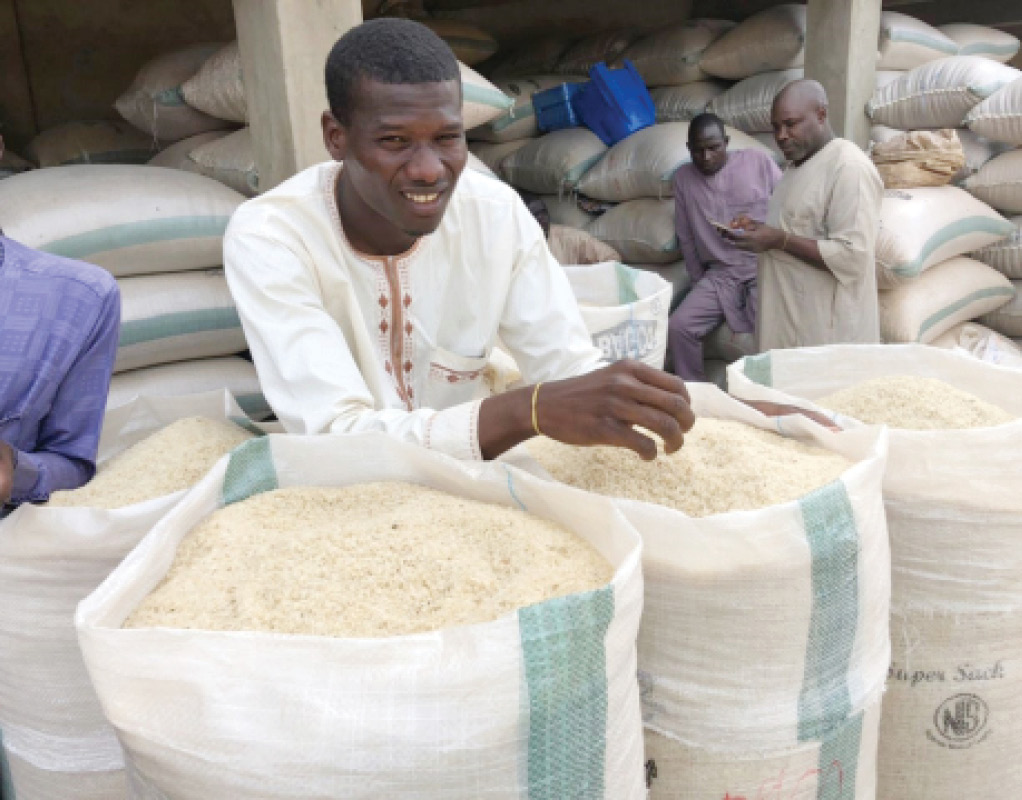CBN’s cash directive: Kano grain markets bouncing back
Following the commencement of issuing old naira notes by commercial banks in Kano State, businesses at Dawanau International Grain Market, Kura rice market, Bunkure ATAPS market, among other agro-commodity markets, are gradually bouncing back. Grain business in Kano State had faced a serious setback due to cash scarcity, especially for small scale operators, and as […]

Produce merchants at Dawanu Grain Market in Kano
Following the commencement of issuing old naira notes by commercial banks in Kano State, businesses at Dawanau International Grain Market, Kura rice market, Bunkure ATAPS market, among other agro-commodity markets, are gradually bouncing back.
Grain business in Kano State had faced a serious setback due to cash scarcity, especially for small scale operators, and as such, the business took a new dimension under the Central Bank of Nigeria (CBN) naira redesign and swap policy.
It was reported that many small scale grain business operators lamented that business activities had become very difficult as most of their customers did not own bank accounts and businesses were usually being conducted with physical cash.
Reports have also shown that in most of the major grain markets in the state, cash crisis had forced down prices of food commodities.
How Katsina farmers ‘harvest’ money from sugarcane
Palm oil business profitable – Traders
Dawanau International Grain Market, which serves as a major supplier of various food and cash crops for export, as well as local consumption, was reported to have adopted a new commodity price strategy of doing business to escape the grip of the cash crunch by bargaining different prices to a commodity based on mode of payment. For example, a customer would pay less if he had cash but paid more using other means.
However, with the CBN directive to commercial banks to issue more notes, old and new, businesses in grain markets have begun to bounce back gradually.
Malam Mustapha Isah, a small holder grain businessman at Dawanau, said business activities gradually changed as cash flow in the market increased remarkably.
“People can now buy from us using cash; we can also buy from others, so cash flow has remarkably increased. However, it is a gradual process,” he said.
Similarly, for Aminu Buba Kubarachi, a rice dealer at Kura mill, the injection of more notes has cushioned the hardship caused by cash crunch. He added that his business and that of others was regaining vigour.
“As time goes on, we will all return to normal business activities. With the CBN’s order, grain business and many other businesses are regaining their vigour,” he said.
